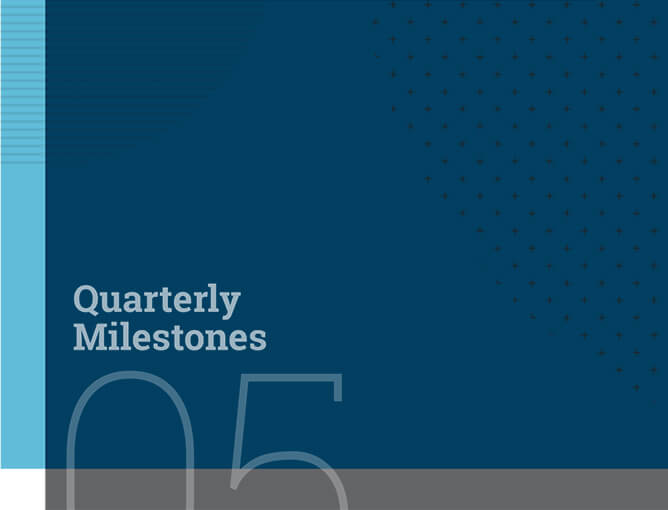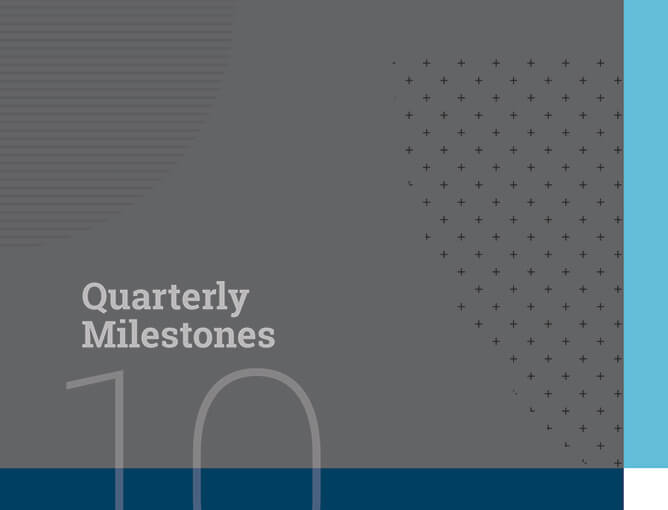
Ankush GoyalPartner

Vividha BawaSenior Associate

Rohan KohliSenior Associate
Key Developments
-
Enhanced corporate governance standards prescribed for listed entities
In a move to strengthen disclosure and governance standards for listed entities, the Securities and Exchange Board of India (SEBI) notified various amendments to the SEBI (Listing Obligations and Disclosure Requirements) Regulations, 2015 (LODR Regulations), on 14 June 2023. These amendments follow the various public consultations undertaken by SEBI towards the end of 2022 and early 2023. The requirements brought in through these amendments are applicable within 30 days from 14 June 2023 (except where otherwise stated below in certain instances).
Key highlights of these amendments are set out below.
-
Enhanced disclosures and clarifications on materiality thresholds
The amendments have specified additional thresholds for the determination of 'materiality' for the purpose of disclosures. Events or information whose value or impact exceeds 2% of turnover or net worth (except in case the arithmetic value of the net worth is negative) as per the last audited consolidated financial statements, or 5% of the average of the absolute value of profit or loss after tax, as per the last three audited consolidated financial statements – must now be disclosed by listed entities. Further, promoters, promoter group companies, key managerial personnel, directors, related parties, shareholders and employees must disclose arrangements entered into by them (among themselves or with the listed entity or a third party, solely or jointly) which may impact (potentially or actually) the management or control of the listed entity or impose any restriction or create any liability on the listed entity. The listed entities are, in turn, required to disclose the number of agreements that subsist, and their salient features, including the link to the webpage where the complete details of such agreements are available, in the annual report for the Fiscal Year 2023 or 2024.
Listed entities may need to review and suitably amend their materiality policies for the determination of material events. To facilitate this determination, SEBI also published detailed guidelines, on 13 July 2023, further elaborating on various aspects of these amendments, such as (i) disclosures of such material events or information, (ii) timelines for making such disclosures, (iii) guidance on when such material event or information is said to have occurred, and (iv) criteria for calculation of average of profit or loss after tax for the purposes of determining materiality of an event or information.
Separately, on the same day, SEBI also notified a framework for disclosures and assurance for the value chain of listed entities as a sub-set of the Business Responsibility and Sustainability Report (BRSR) that was prescribed by SEBI earlier in 2021 for Environmental, Social and Governance (ESG) related disclosures by top 1000 companies by market capitalisation. This framework – called BRSR Core – consists of a set of key performance indicators relating to the value chain of a listed entity (consisting of its top upstream and downstream partners, cumulatively comprising 75% of its purchases or sales (by value) respectively) that must be reported.
-
Continuation of a director will now require periodic shareholder approval
From 1 April 2024 onward, the continuation of a director on the board of a listed company will require shareholder approval once every five years from the date of their appointment or re-appointment. Further, any director serving on the board as of 31 March 2024, without shareholder approval for the last five years, will need to obtain such approval in the forthcoming general meeting.
This requirement comes with a few exceptions and does not apply to:
- whole-time director;
- managing director;
- manager;
- independent director;
- director retiring by rotation (in each case, if the requisite shareholder approval has been obtained for such re-appointment as prescribed otherwise under the LODR Regulations or the Companies Act, 2013 (Act));
- nominee director appointed by financial regulators or by the government (other than a public sector company);
- director appointed by a court or a tribunal;
- director appointed by a Reserve Bank of India (RBI) registered or regulated financial institution under their respective lending arrangement; or
- director nominated by a SEBI registered debenture trustee pursuant to a debenture subscription agreement.
This measure will directly impact the permanency of nominee directors of investors pursuant to contractual arrangements, especially in companies that feature a diverse set of institutional investors on cap tables.
-
Strict timelines of three months prescribed for filling vacancies of directors and key managerial personnel
The amendments have mandated a strict maximum period of three months (which is more stringent than the requirement of six months under the Act) for filling vacancies of CEO, CFO, compliance officer, managing director, whole-time director, manager and any other director. Further, in case a listed entity is likely to become non-compliant with the minimum board composition requirements due to the expiration of any director’s term, such vacancy will have to be filled before the office is vacated. These timelines may lead to practical challenges for listed entities to find suitable candidates and will require planning ahead of time.
-
Periodic approval of shareholders mandated for special rights granted to certain shareholders
In a move to allow public shareholders to scrutinise the rights available and exercised by specific shareholders at periodic intervals, any special rights granted to shareholders by a listed entity (other than rights granted to RBI regulated or registered financial institutions under a lending agreement or to a SEBI registered debenture trustee under a subscription agreement) will now be subject to shareholder approvals once every five years by way of a special resolution. Any such special rights available to shareholders as on 14 July 2023 will also need to be approved within five years. Since the scope of the term ‘special rights’ (including any grandfathering thereof) has not yet been clarified, such periodic approval requirements may potentially cover anti-dilution protections or transfer restrictions or affirmative voting rights, etc., being granted to investors under contractual arrangements.
Previously, there were no such periodic shareholder approval requirements prescribed for special rights granted to shareholders of listed entities.
-
Stricter shareholder approval thresholds for listed entities entering business transfer agreements
The disposal or transfer of any undertaking by a listed entity, other than through a scheme of arrangement, will require shareholders’ approval through special resolution plus a majority of minority approval (i.e., votes cast by public shareholders in favour of the resolution must exceed the votes cast by them against it). Also, the purpose, commercial rationale and use of proceeds from such disposal need to be disclosed upfront to the shareholders. However, the transfer or disposal of the whole of the undertaking by a listed entity to its wholly owned subsidiaries (WOS) is exempt from this requirement provided that the accounts of such WOS are consolidated with the listed entity, and there is no dilution in the listed entities’ shareholding in WOS. Going forward, such approval requirements will become a key aspect for listed companies undertaking slump sale, business purchase or asset purchase transactions. This could translate into more opportunities for shareholder activism and a demand for greater transparency and accountability from listed companies. Further, unless further clarifications are provided in this regard, any business transfers by listed companies to their WOS unit may limit the sale of shares of that WOS by the listed holding company in future unless shareholder approval is obtained. This may become an important factor from a long-term growth perspective for listed companies, especially in respect of monetising their WOS holdings, disinvestments and fundraising activities in their WOS, etc.
-
-
Definite timelines introduced for fast-track mergers
In a move likely to benefit intra-group restructurings, the Companies (Compromises, Arrangements and Amalgamations) Amendment Rules, 2023 have prescribed definite timelines for various steps in certain mergers and acquisitions (M&A) deals which are colloquially referred to as fast-track mergers (i.e., between small companies or between a holding company and its WOS company or such other class of companies as may be prescribed) and introduced the concept of deemed approval by regulatory authorities to ease the process. Set out below are some key changes.
Step/Process Erstwhile Timeline(s) Amended Timeline(s) Objection(s)/suggestion(s) by the registrar of companies (ROC) and official liquidator (OL). No timeline for making such a decision. ROC and OL are required to approve or object to the scheme within a period of 30 days of receipt of the copy of the scheme. Approval or objection by the central government where no objection(s)/suggestion(s) are sent by ROC/OL. No definite timeline to object. If, in the central government’s opinion, the scheme is in the best interest of the public/creditors, it may, within 15 days from the expiry of said 30 days, issue a confirmation.
If the central government does not provide its approval within 60 days from receipt of the scheme, it would be deemed approved.Approval by the central government when the ROC/OL sends its objection(s) or suggestion(s). Central government was supposed to file its objection(s) or suggestion(s) within 60 days if, in its opinion, the scheme was not in the best interest of the public/creditors.
There was no definite timeline prescribed for the central government to act where such objection(s)/suggestion(s) were not sustainable, or the scheme was in the best interest of the public/creditors (in the central government’s opinion).- If the central government finds the objection(s) of ROC/OL unsustainable and the scheme, in its opinion, is in the best interest of the public/creditors, it may issue a confirmation order for such scheme within 30 days from the expiry of the 30 days referred above.
- If the central government finds such objection(s) as grounds that the scheme is not in the best interest of the public/creditors, it may file the scheme with the National Company Law Tribunal within 60 days from receipt of the copy of the scheme stating such objection(s).
It is not clear whether the benefit of the above amendments will also be available to eligible companies currently undergoing merger/amalgamation.
-
Certain categories of investors exempted from the applicability of the angel tax provision
The Finance Act, 2023 recently amended the existing angel tax provision to extend its application to non-resident shareholders as well. This amendment was seen as adversely impacting the ability of privately held companies (PLC) to raise capital at a premium from non-resident investors since, unlike shares issued to resident investors, shares issued to non-resident investors must also comply with the valuation requirements under the foreign exchange management (FEMA) laws. There were apprehensions that the valuation norms under the angel tax provision would conflict with the valuation norms under the FEMA regulations and impact the ability of PLCs to raise capital from non-resident investors.
Considering the representations received from various stakeholders, the government has taken the following measures:
- angel tax provision will not apply to recognised start-ups subject to the fulfilment of certain conditions;
- share consideration received from notified investors will not be subject to angel tax; and
- angel tax valuation rule – Rule 11UA of the Income Tax Rules, 1962 (Rules) – is proposed to be amended.
(To read our detailed update on these measures, click here.)













